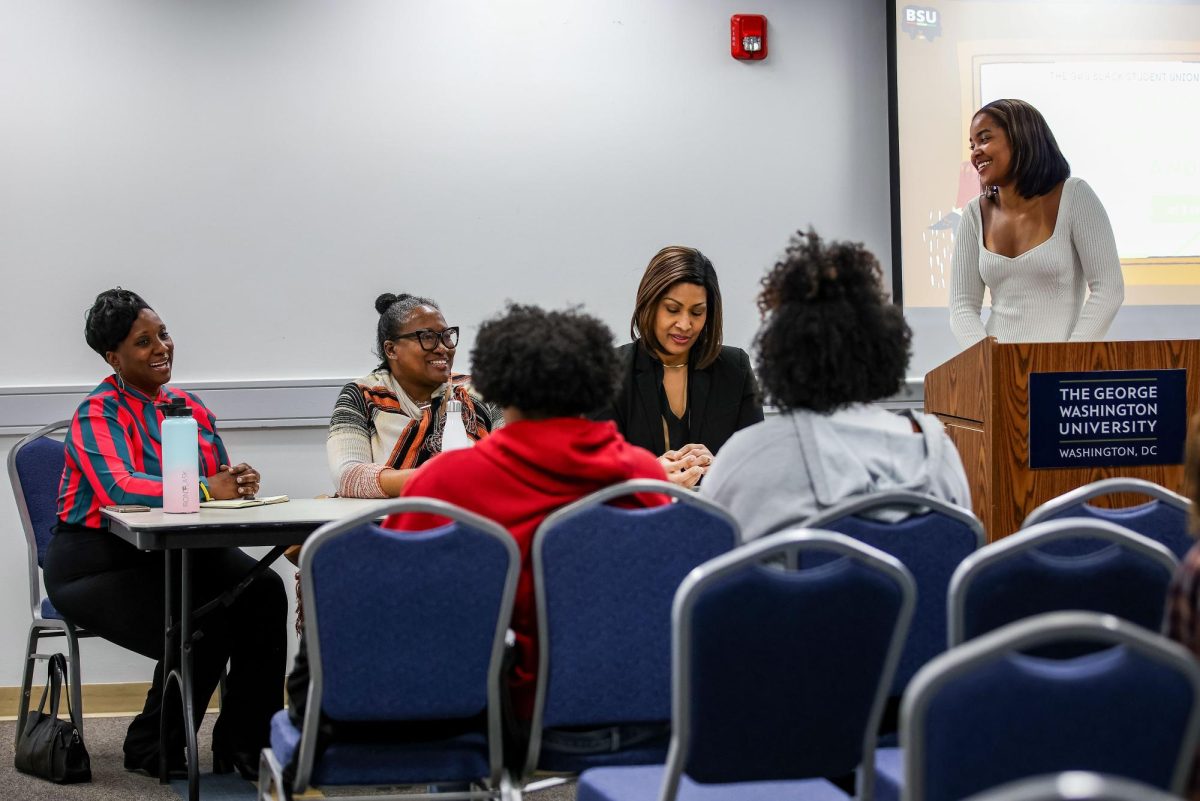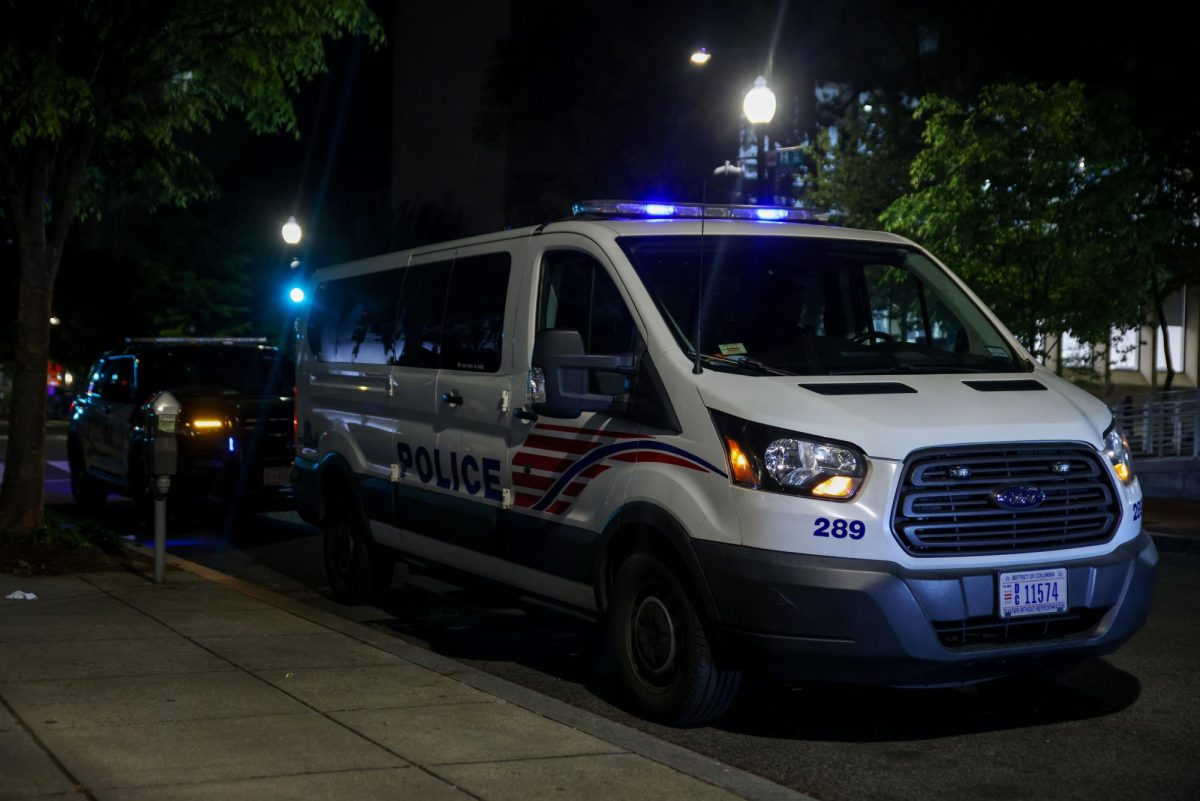Three GW professors discussed self-advocacy as Black women in professional and academic spaces at the University Student Center on Monday.
Professors Renee’ Roberts-Turner, Shana Mashego and Jameta Nicole Barlow shared personal stories about their experiences as Black women navigating the professional world. The Black Student Union hosted the conversation moderated by BSU Director of Advocacy Clarke Gilmore.
Mashego, a professor of African American music, said the academic community’s interest in African American music increased following the murder of George Floyd in 2020, which sparked Black Lives Matter protests around the world. She said some universities were then able to hire Black professors to teach African American music history and publications in the subject because of increased funding for the subject.
“All of this scholarship just started coming out of the woodwork after George Floyd’s death,” Mashego said. “And so the concern we had was, was this momentum going to keep up? And what we’re seeing now, of course, is a bit of a waning in that regard, but our goal is to continue the conversation.”
Roberts-Turner, an assistant professor of pediatrics and the executive director of nursing excellence at Children’s National Hospital, said the American Nurse Association awarded a grant to the hospital in January to provide hair care for adolescent and children patients of every ethnicity.
“So there has been miscare across the nation and country, it’s not just the United States, it’s across the world,” Roberts-Turner said. “So we’re going to change that.”
Barlow, an assistant professor of writing, health policy and management and women’s, gender and sexuality studies, said the momentum of DEI progress has slowed and that universities are cutting DEI programs and terminating DEI-related roles. She said she doesn’t take jobs related to DEI because they are prone to being cut.
“They’re pulling funding or getting rid of these roles,” Barlow said. “I know so many faculty that got into these DEI roles, and now they’re being eliminated. That was intentional.”
Barlow said audience members should study Black history to understand and address the issues Black people face today.
“Get all the Black history books you can, hold on to them, read them, learn them because this is our instruction for how to move forward,” Barlow said.
Mashego said African American music history is a white male-dominated field and, because of this, their research is more “respected” than that of Black researchers. She said her white colleagues have continuously questioned her research on African American music.
“Those of us who are part of this experience have voices, and our voices are the most legitimate voices,” Mashego said. “We are original sources, we are primary sources for our own research.”
Barlow said on her first day of work at another university, two Black students thanked her for supporting them after another professor asked them to publicly comment on colonialism. She said students who have similar encounters should connect with Caroline Laguerre-Brown, the vice provost for diversity, equity, and community engagement, who has an “unwavering dedication” to Black students’ experience at GW.
“So be a scholar, engage in those ways, but make sure you know all of the options that you have here on campus,” Barlow said.
Mashego said Black students should seek allies who are “authentic” and uphold their Black identity.
“That authenticity you’re trying to maintain is very important in that you need to be able to see that in that ally,” Mashego said.





